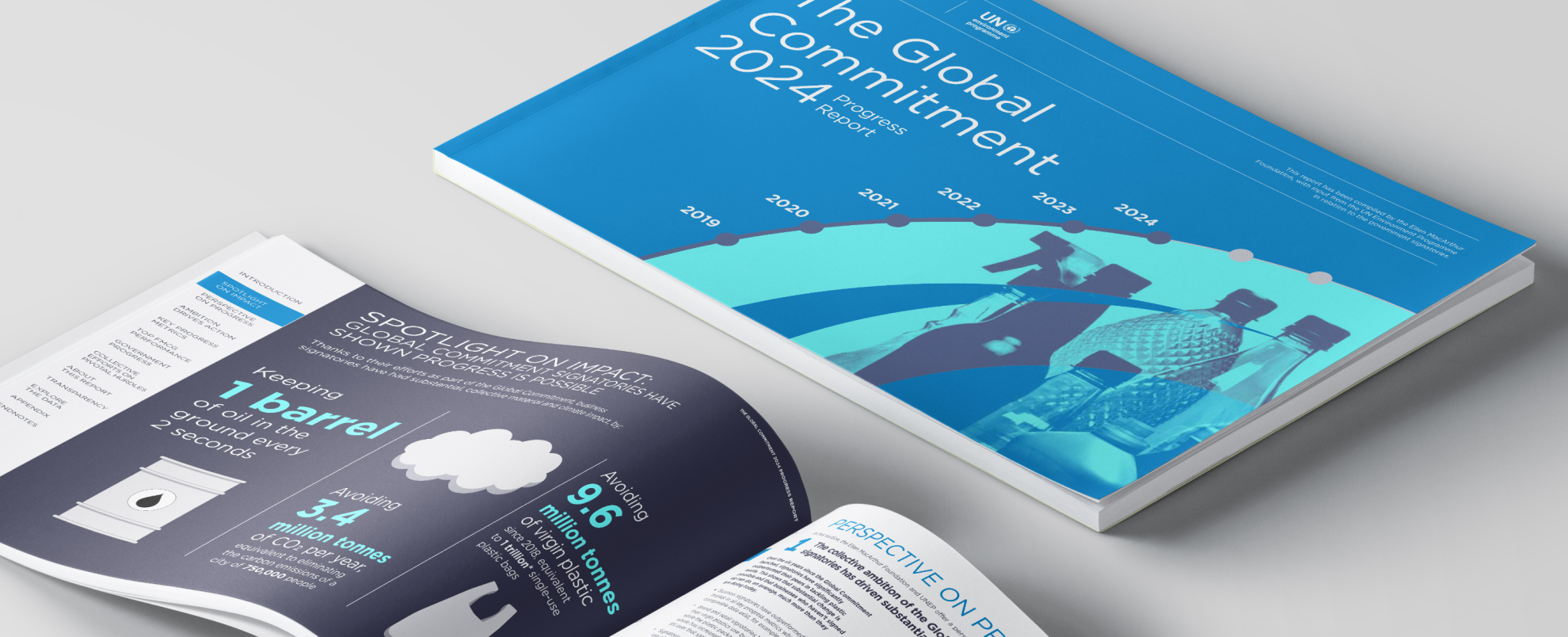Since 2018, more than 1,000 organisations have given their backing to the Global Commitment, led by the Foundation in partnership with the UN Environment Programme, to stop plastic packaging from becoming waste. Currently the largest voluntary effort to tackle plastic pollution and waste, it has demonstrated the power of collective action. However, it has also shown that the job is far from done.
This year’s annual progress report shows:
Signatories have significantly outperformed peers in tackling plastic waste over the six years since the Global Commitment was launched.
The collective efforts of signatories avoided 9.6 million tonnes of virgin plastic since 2018, equivalent to 1 trillion single-use plastic bags.
Brand and retail signatories have reduced their virgin plastic use by 3% since 2018. By comparison, the plastic packaging market as a whole has increased by 8% in the same period.
By increasing their use of recycled plastics, signatories are keeping one barrel of oil in the ground every two seconds whilst eliminating the equivalent carbon emissions of a city of nearly 750,000 people.
For the sixth consecutive year, signatories continued to increase their use of post-consumer recycled (PCR) content.
Signatories remain unlikely to meet key 2025 targets, and the world remains off track to eliminate plastic waste and pollution.
With 80% of the global plastic packaging market not covered by the Global Commitment, legally binding global policy is now also viewed as essential alongside voluntary action to get the job done. Between 25 November and 1 December 2024, global representatives will convene in Busan, Republic of Korea, for INC-5, the last planned round of negotiations to secure a UN treaty based on legally binding global rules to address plastic pollution. INC-5 is a pivotal, once-in-a-generation opportunity to tackle plastic pollution.
“The Global Commitment has demonstrated the power of voluntary business action in the fight against plastic waste and pollution, keeping resources in the ground and out of our environment. Although the world remains far off track from fixing this crisis, signatories continue to significantly outperform their peers and demonstrate the roadblocks and challenges on the path ahead. We now need to see an international legally binding instrument on plastic pollution alongside voluntary action - both are crucial. Negotiators have a chance to agree on a global plastics treaty this month, and we call on them to finalise an ambitious agreement to accelerate progress in the fight against plastic waste and pollution.” - Aisha Stenning, Lead - Business Action for the Ellen MacArthur Foundation’s Plastics Initiative

